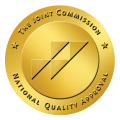How Dry January Can Help Break the Cycle of Binge Drinking
Welcome to a new year, where resolutions are made and goals are set. One resolution that has gained immense popularity in recent years is “Dry January” – a challenge where individuals commit to abstaining from alcohol for the entire month. But this isn’t just another fad; it’s an opportunity to break free from the cycle of binge drinking and take control of our relationship with alcohol. In this blog post, we will delve into why Dry January is more than just a trendy detox but rather a powerful tool that can reshape our habits, transform our health, and pave the way towards a better future.
Dry January is an increasingly popular movement that encourages people to give up alcohol for the entire month of January. It started in the United Kingdom in 2013 and has since gained traction worldwide, with millions of people participating each year.
The purpose of Dry January is simple: to promote healthier drinking habits, raise awareness about the negative effects of excessive alcohol consumption, and break the cycle of binge drinking. It also serves as a reset for those who may have overindulged during the holiday season.
While it may seem like a daunting challenge to completely give up alcohol for a whole month, there are many benefits to taking part in Dry January. Not only can it improve your physical health, but it can also have positive impacts on your mental well-being and overall lifestyle.
In this blog post, we will delve deeper into the purpose of Dry January and explore how this one-month challenge can help break the harmful cycle of binge drinking.
Understanding binge drinking and its effects on the body
Binge drinking is a common form of excessive alcohol consumption that involves consuming large amounts of alcohol in a short period of time. It is often associated with social events, parties, and other occasions where individuals may feel pressure to drink more than they normally would. While many people may see binge drinking as a harmless way to have fun, it can actually have serious consequences on both physical and mental health.
When a person consumes excessive amounts of alcohol in one sitting, the body is not able to process it all at once. This leads to a rapid increase in blood alcohol concentration (BAC), which can result in immediate effects such as slurred speech, impaired judgment, and loss of coordination. These symptoms are commonly known as being “drunk” or “intoxicated.”
However, binge drinking has more long-term effects on the body that are not always immediately apparent. Over time, repeated episodes of binge drinking can lead to serious health problems such as liver disease, high blood pressure, heart disease, and neurological damage.
One of the main reasons for these negative effects is that binge drinking puts significant stress on the body’s organs. The liver is responsible for filtering out toxins from the body, including alcohol. When someone engages in frequent episodes of heavy drinking, their liver becomes overworked and damaged cells may start replacing healthy ones. This can eventually lead to serious conditions such as cirrhosis or fatty liver disease.
How Dry January can break the cycle of binge drinking
Binge drinking is a common practice among many individuals, especially during social events or gatherings. It involves consuming large amounts of alcohol in a short period of time with the intention of getting drunk. While this may seem like a fun and harmless activity, it can have serious consequences on both physical and mental health.
One way to address binge drinking habits is through participating in Dry January. This movement encourages individuals to abstain from alcohol for the whole month of January as a way to reset their relationship with alcohol and break the cycle of binge drinking.
So how exactly does Dry January help break the cycle of binge drinking?
1. Increased Self-awareness
When we engage in excessive drinking, we often do it without much thought or consideration for our own well-being. Participating in Dry January forces us to be more mindful about our actions and choices regarding alcohol consumption. By choosing not to drink for an entire month, we become more aware of our triggers and patterns when it comes to binging on alcohol.
2. Breaking Habits
Binge drinking can become a habit that is hard to break once it becomes ingrained in our daily routine. However, by making a conscious effort not to drink during Dry January, we are breaking that habit loop and creating new ones that don’t revolve around excessive alcohol consumption.
3. Improved Physical Health
Excessive alcohol consumption has numerous negative impacts on our physical health, such as liver damage, increased risk of heart disease, and weight gain. By taking a break from alcohol, our bodies have a chance to heal and recover, leading to improved overall health.
4. Better Sleep
Drinking heavily can disrupt our sleep patterns, making it difficult to get quality rest. This can lead to fatigue and irritability the next day, perpetuating the cycle of binge drinking as we turn to alcohol for energy or relaxation. By abstaining from alcohol, we allow our bodies to get the rest it needs and break this unhealthy cycle.
5. Improved Mental Health
Binge drinking can also have negative effects on our mental well-being. In the short term, it may make us feel relaxed or carefree, but in the long run, it can increase feelings of anxiety and depression. Taking a break from alcohol during Dry January can give us a clearer perspective on how alcohol affects our mood and mental state.
6. Financial Benefits
Binge drinking can be an expensive habit, especially if done frequently. By participating in Dry January and cutting out alcohol expenses for a month, we may realize just how much money we are spending on drinks and potentially save some money in the process.
Tips for successfully completing Dry January
Dry January is a popular movement that encourages people to give up alcohol for the entire month of January. It can be a great way to reset your relationship with alcohol and break the cycle of binge drinking. However, it can also be a challenging endeavor, especially if you are used to consuming alcohol regularly. To help you successfully complete Dry January, here are some tips:
1. Set realistic goals: Before starting Dry January, it’s essential to set realistic goals for yourself. Decide on how many days or weeks you want to go without drinking and stick to it. Don’t push yourself too hard; instead, aim for achievable milestones.
2. Find an accountability partner: Having someone to hold you accountable can make all the difference in successfully completing Dry January. Ask a friend or family member who also wants to cut back on their alcohol consumption or join support groups like “DryJanuary” on social media platforms.
3. Prepare mentally: Going without alcohol for an entire month may seem daunting at first, but remember why you’re doing this in the first place – for your health and well-being! Mentally prepare yourself by reminding yourself of these reasons whenever you feel tempted to drink.
4. Explore non-alcoholic alternatives: One of the major challenges during Dry January is finding alternative drinks that are not alcoholic but still satisfying enough. Luckily, there are plenty of non-alcoholic options available nowadays – from mocktails and non-alcoholic beer/wine to flavored sparkling water and herbal elixers.
Benefits of a month without alcohol
There are many potential benefits to taking a month-long break from alcohol. Here are some of the most common and impactful benefits you may experience during a month without alcohol:
1. Improved Physical Health: Alcohol consumption can lead to various health issues, including liver damage, high blood pressure, and increased risk of certain cancers. By abstaining from alcohol for a month, your body has time to repair and heal any damage caused by regular drinking. Additionally, cutting out empty calories from alcohol can lead to weight loss and improved overall physical health.
2. Better Sleep Quality: Alcohol is known to disrupt sleep patterns and prevent deep restful sleep. Without the presence of alcohol in your system, you may find that you fall asleep faster and stay asleep longer. This can result in feeling more well-rested and energized throughout the day.
3. Mental Clarity: Alcohol consumption can affect cognitive function and decision-making abilities, leading to impaired judgment and memory loss. By avoiding alcohol for a month, you may notice an improvement in your ability to focus, think clearly, and make sound decisions.
4. Emotional Well-being: Many people turn to alcohol as a coping mechanism for stress or other negative emotions. However, studies have shown that excessive drinking can actually worsen feelings of anxiety and depression. Taking a break from alcohol can help improve your overall mood and emotional state.
5. Financial Savings: The cost of daily drinks or nights out at bars can add up quickly over time. By not spending money on alcohol for a month, you may be able to save a significant amount of money. This can be put towards other expenses or saved for future goals.
6. Time Management: Drinking alcohol often takes up a lot of time, whether it’s waiting in line at the bar or recovering from a hangover the next day. Without the presence of alcohol, you may find yourself with more free time to pursue other activities and hobbies.
7. Self-Discovery: Taking a break from alcohol can also give you the opportunity to reassess your relationship with alcohol and how it fits into your life. You may discover that you don’t need to drink in order to have fun or relax, and you may gain a better understanding of your personal limits when it comes to drinking.
Overall, abstaining from alcohol for a month can lead to improved physical health, mental clarity, emotional well-being, and even financial savings. It can also provide an opportunity for self-discovery and potentially lead to long-term changes in your relationship with alcohol.
Alternatives to alcohol during Dry January
During Dry January, many people may struggle with finding alternatives to alcohol to help them stay on track with their goals of abstaining from drinking. However, there are plenty of enjoyable and healthy options that can be incorporated into your routine during this month. Here are some suggestions for alternatives to alcohol during Dry January:
1. Mocktails: Mocktails are non-alcoholic cocktails that mimic the taste and presentation of traditional alcoholic drinks. They can be just as delicious and refreshing as regular cocktails, but without the negative effects of alcohol. There are countless mocktail recipes available online, or you can get creative and come up with your own concoctions using ingredients such as fresh fruits, herbs, sparkling water, and juices.
2. Herbal tea: Drinking herbal tea is not only a great way to stay hydrated but also a good substitute for alcohol. Many teas have calming properties that can help reduce stress and anxiety – two common triggers for binge drinking. Some herbal teas like chamomile or lavender may also aid in improving sleep quality.
3. Kombucha: Kombucha is a fermented drink made from sweetened tea and a culture of yeast and bacteria. It has gained popularity in recent years due to its potential health benefits such as improved digestion and immune function. It also comes in various flavors that can satisfy cravings for different types of alcoholic beverages.
4. Sparkling water: For those who enjoy the fizziness of beer or champagne, sparkling water can be a fantastic alternative during Dry January. You can add fruit or herbs for a fun flavor!
Maintaining a healthy relationship with alcohol after completing Dry January
Completing Dry January can be a great accomplishment and a significant step towards breaking the cycle of binge drinking. However, it is essential to maintain a healthy relationship with alcohol even after the challenge is over. Here are some tips on how you can continue to make positive changes in your drinking habits and maintain a healthy balance with alcohol.
1. Set realistic goals: The key to maintaining a healthy relationship with alcohol is to set realistic goals for yourself. It’s important not to swing from one extreme (abstaining completely) to the other (binge drinking). Instead, aim for moderation and limit your consumption to a few drinks per week.
2. Practice mindfulness: Being mindful of your drinking habits can help you stay in control and avoid overindulging. Pay attention to why and when you’re reaching for an alcoholic drink, and try to find healthier alternatives or distractions if necessary.
3. Find alternative activities: Often, we turn to alcohol as a way to relax or have fun, but there are plenty of other activities that can provide similar benefits without involving alcohol. Consider taking up a new hobby, joining an exercise class, or spending quality time with loved ones instead of going out for drinks.
4. Avoid triggers: Identify what triggers your desire for excessive drinking and try to avoid those situations as much as possible. This could be certain people, places, or events that tend to lead you towards heavy drinking.
5. Pace yourself! It is not a race.
The lasting impact of participating in Dry January
Participating in Dry January can have a lasting impact on both individuals and society as a whole. By taking a break from alcohol consumption for the entire month, individuals are able to experience numerous physical, mental, and social benefits that can lead to long-term positive changes in their relationship with alcohol.
If you or someone you love is struggling with binge drinking, please Call Aftermath Addiction Treatment Centers at 855-795-1226 to speak with one of our knowledgeable staff.








